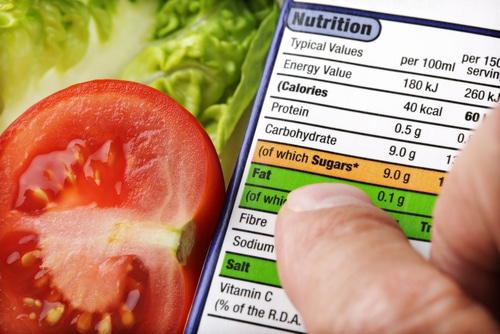 Fat gets a bad rap. Most people equate it with the jiggly stuff that makes their thighs look less firm and covers up their six-pack. The reality is dietary fat is an important part of any diet even if you’re trying to lose body fat. Despite the fact that fat is more calorie-dense than carbohydrates or protein, it helps you feel full so you eat less. That’s because it slows gastric motility so digestion is slowed, dulling your appetite more quickly. It also helps with the absorption of fat-soluble vitamins like vitamins A, D, E and K, and fat-soluble antioxidants like beta-carotene. Without adequate fat in your diet, you can actually develop a deficiency of certain vitamins.
Fat gets a bad rap. Most people equate it with the jiggly stuff that makes their thighs look less firm and covers up their six-pack. The reality is dietary fat is an important part of any diet even if you’re trying to lose body fat. Despite the fact that fat is more calorie-dense than carbohydrates or protein, it helps you feel full so you eat less. That’s because it slows gastric motility so digestion is slowed, dulling your appetite more quickly. It also helps with the absorption of fat-soluble vitamins like vitamins A, D, E and K, and fat-soluble antioxidants like beta-carotene. Without adequate fat in your diet, you can actually develop a deficiency of certain vitamins.
Put away the fat-free salad dressing. Without a little fat in that salad, you won’t absorb all of the nutrients. Plus, you need to get two essential fatty acids called alpha-linolenic acid and alpha-linoleic acid through diet because your body can’t make them. Without adequate fat, your body can’t make certain hormones, including growth hormone that’s important for muscle growth, and the health of your skin will suffer since fats in the outer layer of your skin help to prevent moisture loss.
So how much fat is enough? You can get by with less than 10% of your calories coming from fat but it isn’t ideal. At this level, you’re likely to experience dry skin and dry hair. Plus, what are you replacing the fat with? Hopefully, not processed carbohydrates and sugar. For most people, fats should make up 20 to 25% of their total daily calorie intake. This comes to about 0.5 grams of fat per pound of body weight each day. For example, if you weigh 150 pounds, you would consume about 75 grams of fat a day.
Fat Quality Counts Too
Dietary fats aren’t a homogenous group. There are “good” fats including monounsaturated fats and certain types of polyunsaturated fats like omega-3 fats and fats to avoid like trans-fat, fat that’s had its natural structure chemically modified. Trans-fat is added to some processed foods to prolong their shelf-life. Unfortunately, it’s bad news for your arteries. Trans-fat has been strongly linked with an increased risk for heart disease and may increase the risk for certain types of cancer as well. It’s one to avoid even in small amounts. When shopping, carefully read the ingredient list of packaged foods and make sure there’s no mention of hydrogenated oils. If there is, keep it out of your grocery cart. So strong is the evidence against trans-fat that certain areas of the country, including New York City, have banned them.
The evidence against saturated fat, most abundant in red meat and full-fat dairy products as well as certain oils like palm oil and coconut oil, is less certain. They do appear to increase LDL-cholesterol but there’s some recent evidence that they might not be as unhealthy from a cardiovascular standpoint as originally thought. As it currently stands, it’s probably best to limit saturated fat to less than 10% of your total calories and focus more on fats that have heart-healthy properties.
Heart-Healthy Fats
Monounsaturated fats are among the most heart healthy because they favorably affect blood lipid levels. The best sources are olive oil, seeds, nuts, and avocados. Another source of heart-healthy fats is long-chain omega-3s most abundant in fatty fish like wild-caught salmon, mackerel, tuna, and anchovies. Grass-fed beef is also a decent source of omega-3s although it also contains moderate amounts of saturated fat. Long-chain omega-3s have an anti-inflammatory effect. This is important since inflammation inside blood vessels plays a role in heart disease. According to some studies, long-chain omega-3s help to calm this inflammation.
The Bottom Line?
Don’t let the caloric density of fat cause you to fear it. Unlike processed carbs, it slows down the movement of food through your digestive tract and gives you greater satiety. It also helps you absorb certain vitamins and nutrients you need for good health. Make the right fat choices – but don’t fear fat.
Related Articles By Cathe:
Does the Type of Fat You Eat Affect Muscle Development?
Can a Diet Higher in Fat Still Be Heart Healthy?
The Healthy Cooking Oil You Probably Aren’t Using
Fish Oil Versus Krill Oil: Which Has Greater Health Benefits?

